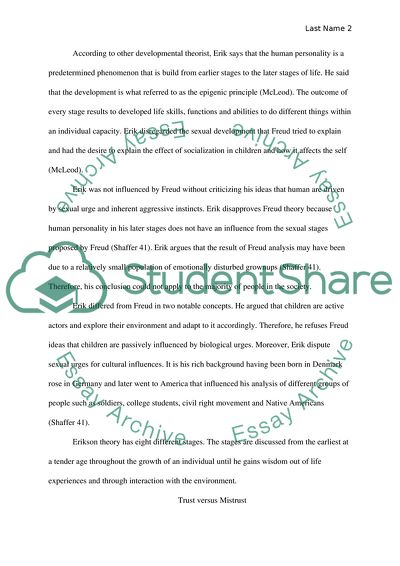Cite this document
(Life Stage Theory of Erikson Essay Example | Topics and Well Written Essays - 1750 words, n.d.)
Life Stage Theory of Erikson Essay Example | Topics and Well Written Essays - 1750 words. https://studentshare.org/psychology/1814251-life-stage-theory-research-assignment
Life Stage Theory of Erikson Essay Example | Topics and Well Written Essays - 1750 words. https://studentshare.org/psychology/1814251-life-stage-theory-research-assignment
(Life Stage Theory of Erikson Essay Example | Topics and Well Written Essays - 1750 Words)
Life Stage Theory of Erikson Essay Example | Topics and Well Written Essays - 1750 Words. https://studentshare.org/psychology/1814251-life-stage-theory-research-assignment.
Life Stage Theory of Erikson Essay Example | Topics and Well Written Essays - 1750 Words. https://studentshare.org/psychology/1814251-life-stage-theory-research-assignment.
“Life Stage Theory of Erikson Essay Example | Topics and Well Written Essays - 1750 Words”. https://studentshare.org/psychology/1814251-life-stage-theory-research-assignment.


